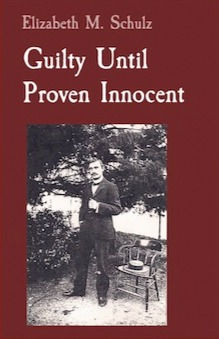Helps future-proof governments, companies, organisations, families and individuals
The Elephant's Tooth
Crime in Alice Springs
I know Alice Springs and other areas are going through incredibly difficult times but this book is full of relevant questions it invites us to answer. Not for the now, but for the where we want to be. Law and order now is important for the safety and security of everyone. But we certainly need a next step.
Craig Blanch - reader.
Between August 2020 and January 2023, independent research into the root causes of crime in rural Australia was undertaken by Sustainable Justice Australia. Hundreds of people from all walks of life were consulted informally through conversation and story. From these conversations, a way forward emerged. An open model, the lychee model, is presented as one way toward sustainable justice.
Alice Springs was taken as an example of a rural town.
The study examines how we think about crime, problems within the law, and trauma in the community and lists the hurdles we have to overcome to solve this highly complex problem.
The reader is invited to participate in several thought experiments that use stories about animals, trees and inanimate things in nature.
Animals and lifeless things were brought before courts of law on criminal charges in the distant and not-too-distant past. In ancient Greece, waves of the sea were punished with whip lashings after a storm had sunk a ship. Rocks and trees that had killed people appeared before a court of law and were trialled, convicted and stricken with hammers or axes as punishments. As recently as 1916, circus elephant Mary was publicly hanged from a railroad crane in Tennessee as a punishment for murder. She had killed her handler after he had prodded her on the left cheek. The coroner who examined Mary after her death found that she had a severely infected tooth in the spot where her minder had prodded her. We no longer put waves, rocks, trees, or animals on trial for reasons that are clear to all of us. We have come a long way. We have become so much more enlightened, but
have we, really?
This is the questions this book tries to answer. A just justice system should be crystal clear about the origins of human behaviour. Punishing people, especially young people, because they deserve it makes as little sense as punishing a wave, a rock, a tree, or an elephant.
The Elephant's Tooth
Crime in Rural Australia
This book contains an extra chapter about crime in rural Australia.
Prisoner Diaries
Elizabeth M Schulz

J.F.W Schulz was an Australian of German heritage who was born north of the Barossa Valley in Robertstown. He was the owner of Auricht's Printing Office, he had a keen interest in film, and was an aspiring politician. He was also a prisoner...
On 13 December 1940, Schulz was arrested and transported to the Wayville Army Barracks. No accusations were made at that time, but Schulz knew what the arrest meant; someone, somewhere, considered him a threat.
Despite an absence of evidence of his disloyalty to Australia, his country of birth, and without a fair trial, Schulz was detained for more than three years. Prisoner Diaries is a record of Schulz's internment during World War II and his relentless search for answers.
Prisoner Diaries Testimonial – Donald A. Ross
The history of the internment of J F W Schulz during World War II is a story that needs to be told; it is an example of how misguided patriotism caused Australians of German descent to be treated as “enemy aliens” during two World Wars despite the fact that they were responsible citizens who had through their industry contributed a lot to the development of their Australian home. The comment has been made that only a small portion of these people were interned; however, those who were not interned also suffered discrimination in various ways, including losing the right to vote during the First World War.
Elizabeth (Liz) Schulz was fortunate to have available diaries and correspondence kept by her grandfather, J F W Schulz, documenting his internment during World War II, thus making this publication possible.
I have pleasant memories as a schoolboy in the late 1940s attending movie film shows of various scenes filmed by Mr. Schulz. These film shows were fundraisers for useful purposes. At the time of World War I, Mr Schulz was the head teacher of the bilingual German/English Langmeil Lutheran School at Tanunda, S A, (one of his pupils was my late father Laurence Ross). By Government decree, all Lutheran primary schools in South Australia were closed in 1917, and thus he lost his job.
Donald A. Ross, Secretary, Barossa Valley Archives & Historical Trust Inc.
Guilty Until Proven Innocent
Elizabeth M Schulz

In 1940, Australian born, J.F.W. Schulz, a respected member of the community in Tanunda, South Australia was arrested and put into detention.
He was accused of being a Nazi and of keeping Nazi propaganda in his home.
Although he maintained his innocence and made a number of appeals against his detention, he remained in detention, far from his family, for another three years and for a further year he was under government direction regarding his occupation and his place of residence.
In this meticulously researched history, his grand-daughter, Liz Schulz explores the reasons given for and the circumstances of his arrest. She had access to the security files of the Australian government: files which her grandfather was never able to examine. She was also able to draw upon her grandfather's own diary and correspondence held in private hands. In mapping his own quest for justice she seeks to get justice for her late grandfather.
While this thesis concerns one individual's struggle it also relates to wider issues about the rights of British subjects of German origin in war-time Australia. Furthermore it illuminates contemporary discussions about civil rights and the power of the state.




